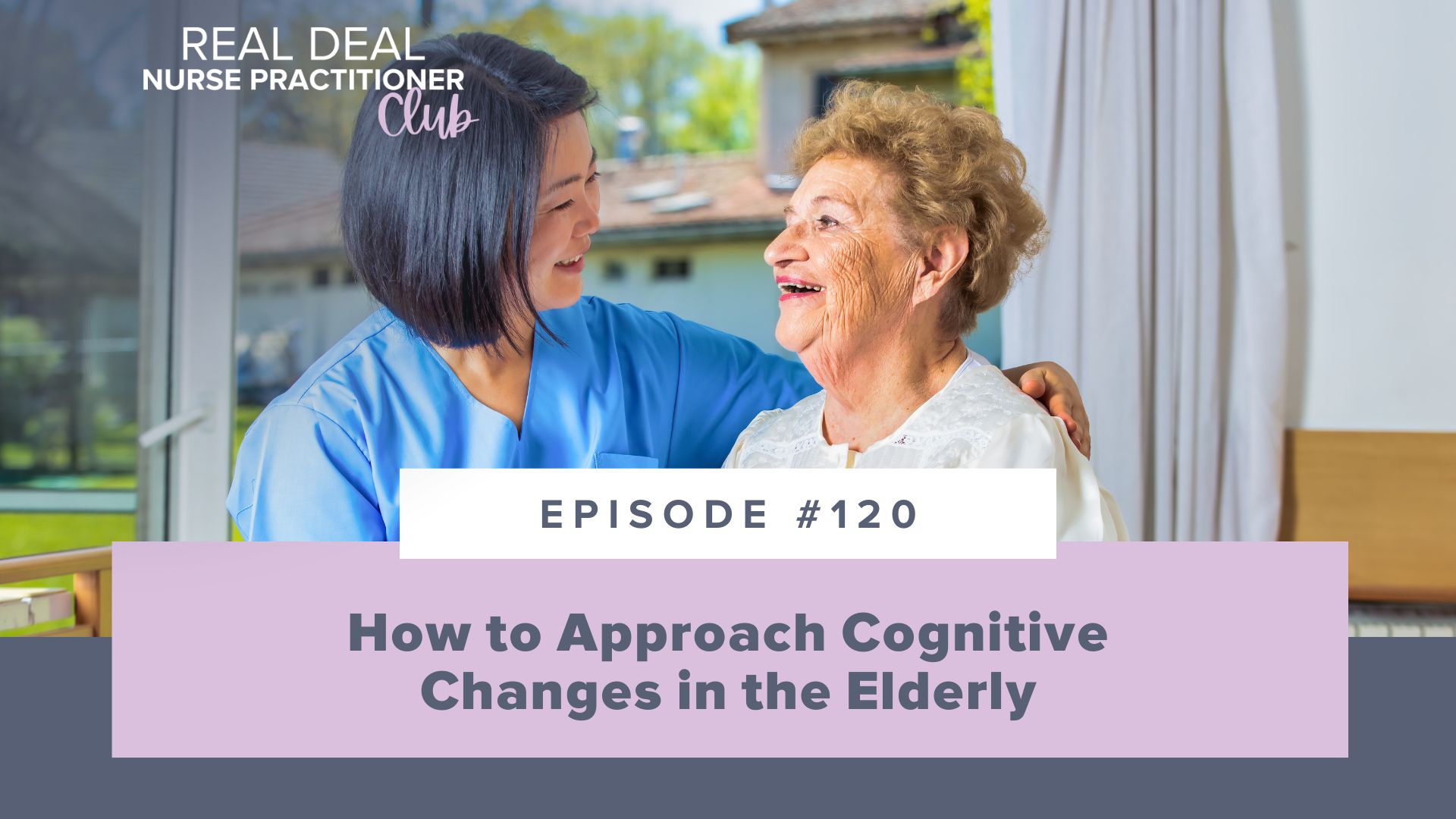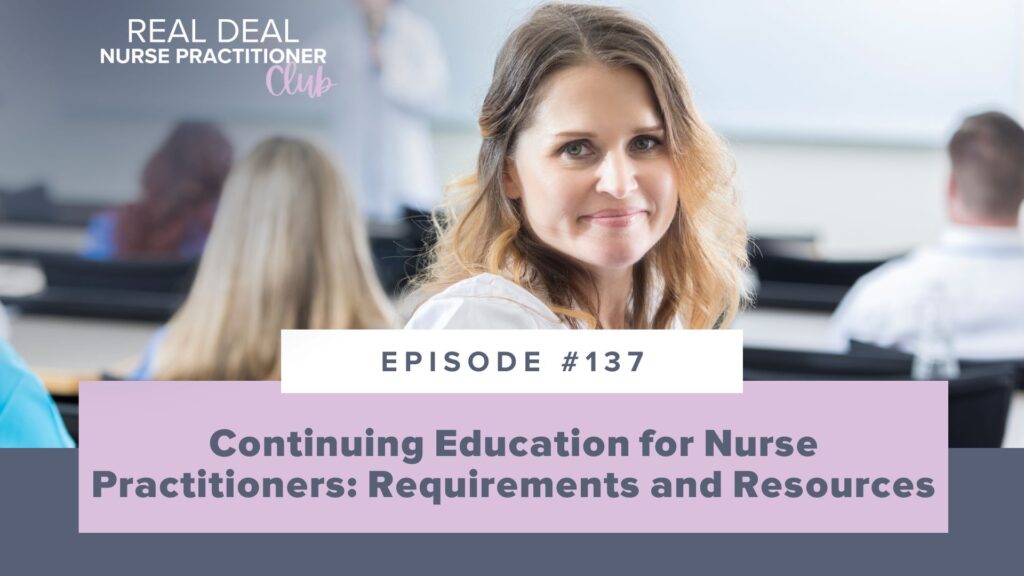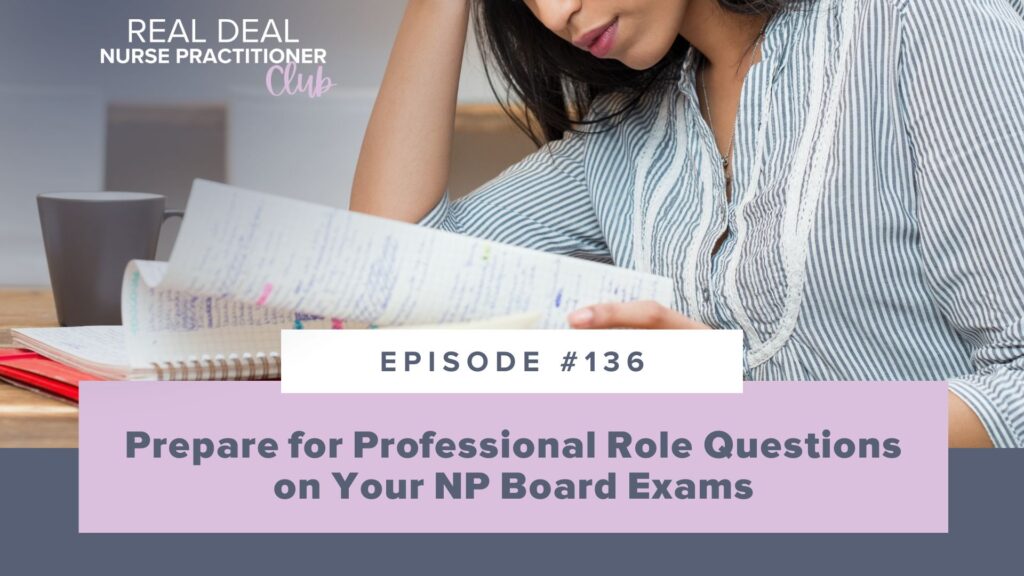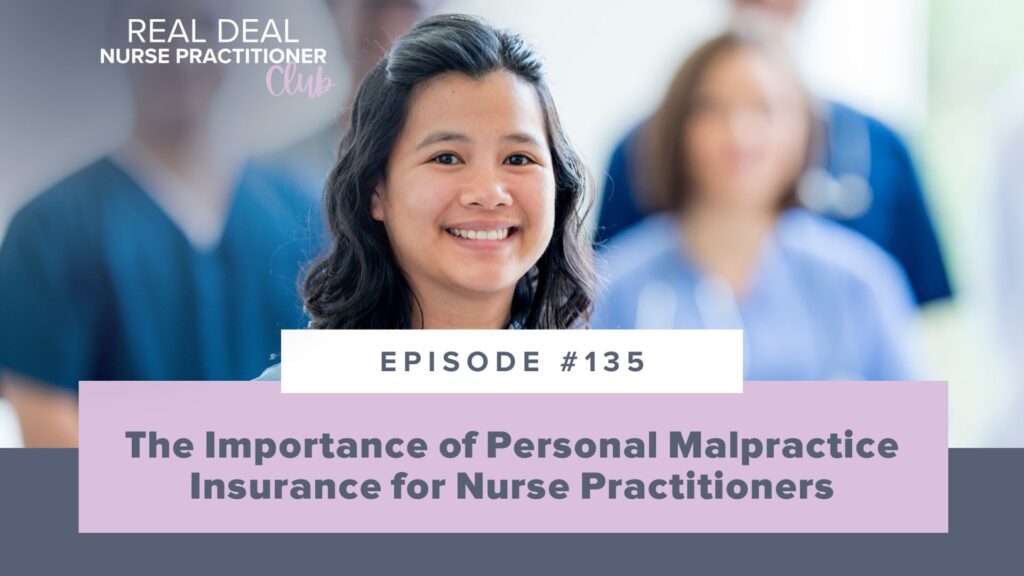Ep #120: How to Approach Cognitive Changes in the Elderly
- by Sarah Michelle
- Aug 21, 2024
- Podcasts

Have you ever wondered how to tell the difference between dementia and delirium in older patients? In today’s episode, Anna and I dive into two fascinating case studies that highlight the key clinical reasoning skills needed to properly diagnose and treat cognitive changes in the elderly.
Since you loved our recent episode where we shared specific patient vignettes and the key takeaways that will help you become better nurse practitioners, we’re back to present two more case studies in older adults, specifically related to dementia and delirium.
Tune in this week to sharpen your clinical acumen and feel more confident the next time you encounter an older patient with signs of cognitive impairment. We walk you through the step-by-step process of evaluating and conducting diagnostic workups for cognitive changes and key considerations to keep in mind to avoid misdiagnosis.
What You Will Discover:
- How to conduct a thorough diagnostic workup for mild cognitive impairment.
- The key differentials to consider for acute changes in mental status.
- How to discuss results and next steps with your patients.
- What to do if you see a quick worsening of dementia.
- Why it’s critical to review the medication list, especially recently added drugs.
Featured on the Show
- Follow me on: Facebook | Instagram | YouTube | TikTok
- Follow us on TikTok and YouTube!
- Check out our Job Hunt Course!
- Ep #117: When Patient Vignettes Reveal Hidden Challenges
Full Episode Transcript:

Welcome to the Real Deal NP Club. Whether you’re hoping to become a real deal nurse practitioner or you already are one, this is the place for you to get the resources you need as you tackle this massive transition into practice. We’re your hosts, Sarah Michelle, Chief Nursing Officer of Blueprint Test Prep, and Anna Miller, Director of Nursing Content. And we’re here to hang out with you each week like your best friends in the NP space. Let’s dive in.
Sarah: Hey y’all, here recently we did an awesome podcast episode just talking about some different clinical scenarios and it was really popular. And so today Anna and I thought we might do that again with some sample scenarios and some studies. And these cases are largely just designed for your learning purposes, but really they can all teach us something and help us to be better clinicians overall, which is what we all hope to be.
And the theme of our case studies today that we’re going to be covering is caring for older adults.
Anna: Yeah, I think that doing these little pretend case scenarios or case studies is just kind of a cool approach to highlighting important clinical practice concepts. And we’ve seen that students really enjoy making connections to what they’re learning in their school programs to these real life clinical scenarios. So we’ve got some really great scenarios for you today.
Sarah: Yeah, the big theme today overall is really dementia versus delirium. And so we’re going to start off talking about a 68 year old man, and he is accompanied by his wife today to this visit. And let’s say they’re both reporting concerns about some possible mild cognitive impairment.
The symptoms are that this man is generally forgetful, he’s missing occasional names and words at times now, but he is still able to be very independent and he does not require assistance with his activities of daily living. And so Anna, what are some initial thoughts here?
Anna: Oh, I mean, there can be a lot of different reasons here, right? And it is important to state that mild cognitive decline is seen as aging advances, but at 68 years old, I would not necessarily expect it like this. And remember that dementia is not a normal aging process, but I’d definitely be looking to rule out other causes of cognitive impairment like maybe declining kidney function, electrolyte imbalances, maybe there’s some metabolic issues or medication side effects. And then of course, we want to do that thorough cognitive evaluation as well.
Sarah: Yeah, you’re absolutely right. So we should be asking lots of history questions. And here’s what we’re going to learn when we do. Patient is in generally good health other than controlled hypertension on two medications. There is a family history of dementia in the patient’s maternal grandmother, but he doesn’t know much else about her history and his father had died from a stroke.
And so on the physical exam too, nothing really stands out. And so what are we kind of thinking next?
Anna: Well, in that assessment you mentioned, did we already do any kind of cognitive testing or do we still need to do that?
Sarah: Good catch. So I definitely want to do some testing here. And so let’s say with this patient, we did the mini mental status examination, also known as the MMSE. And on this, he scored a 23.
So if you remember, a 23 can indicate mild cognitive impairment. And he did have some trouble with short-term memory and naming common items, which would align with some symptoms of dementia, such as amnesia and agnosia. And so my suspicions for possible early signs of dementia are pretty high at this point. But remember, we never want to have tunnel vision, it’s so easy to do. And we want to make sure that we’re checking all those possible differentials.
So we’ve talked about some of them before. So what are some labs we could think about ordering?
Anna: Yeah, when we think of all possible reasons for confusion or any type of cognitive impairment, I mean, I’m thinking about ordering a CBC, a metabolic panel, a liver panel. I mean, maybe even an RPR for syphilis. And when I think about that last one, I’m curious what you think, Sarah, because that syphilis test might not be one on the top of our listeners’ minds.
Sarah: But it’s always one to keep in the back of your mind because that tertiary syphilis can present with cognitive changes. And so it should be considered as a part of a dementia workup.
And then with the patient’s history of hypertension, plus that family history we talked about of both a stroke and dementia, we might want to consider too ordering an MRI of the brain to rule out a stroke because it’s important to note that this patient does not have any signs or symptoms of an acute stroke. So he does not really need that emergency evaluation. But it’s just something to be thinking about.
And now, let’s say a week has gone by, by the time the labs, the MRI comes back, et cetera, the labs are all normal. The MRI did not show any signs of previous infarction, but there is some mild atrophy in that hippocampus area of the brain. And you may not be totally familiar with that finding, that’s okay, but that is associated with changes seen in Alzheimer’s dementia.
Anna: Yeah, I find it super neat that you can find physical evidence of Alzheimer’s dementia, even if it’s not super common that you can, but just really cool when you can.
Now we have all of these findings, so we need to discuss the results with the patient, and that’s not always an easy conversation.
Sarah: Since these results were abnormal, we would want the patient to make a follow-up appointment with us to talk about those results. And whenever that happens, I think the patient is already likely to be on edge, I know I would be. But remember, they just want answers. And so we can start with the good news about the labs being normal, and then we can talk about those findings on the MRI.
But now what if the patient says, well, what are my next steps? Because that is absolutely what we need to talk about next.
Anna: Yes, you always, always need to be prepared with an answer to that question. So, right, we could, in this case scenario, refer them to a gerontologist. And I’ve actually even been in health systems that have gerontologists who specialize in dementia management. So if you have someone like that, that could just be an excellent resource for your patients.
But we have walked through this case step-by-step, definitely something you could see in your clinical practice. So what are your just like key takeaways about this case scenario?
Sarah: I think in any case, you just always need to think about the medical clinical reasoning that we have to do. It really does feel like being a detective sometimes. And cognitive impairment and dementia are complex symptoms in disease processes, and so we want to make sure that the diagnostic workup really reflects that. And so let’s do another one here.
Anna: Yeah, absolutely. And I will say, before we get into this next one, we gave you all the hint that these are going to be about like dementia and delirium, but you’re not always going to know that, right? You’re not always going to know what it’s about, which is why you really have to get that good list of differentials and really do that thorough investigation.
So this next story I want to share is actually one that I learned about from a nurse practitioner colleague who worked in a long-term care facility. And of course, this has been adjusted for patient privacy and really altered for learning purposes.
So let’s say this patient is an 83-year-old woman with a history of Alzheimer dementia. So she’s pretty independent with walking and toileting, but dementia did make it unsafe for her to live by herself now. So she’s been in the facility for a few months and the staff and this NP were pretty familiar with her at baseline, but then over the course of about a week, her cognition really started to decline significantly.
So all of a sudden she’s incontinent, she’s falling, and she’s requiring frequent redirection. Sarah, what are your initial thoughts here?
Sarah: This one’s interesting. So this seems like a pretty quick worsening of dementia, so kind of leaning towards something more acute instead. So maybe an infection, like I’m always thinking UTIs, maybe a stroke, maybe anemia. There might even be some medication issues going on. And so how did you kind of proceed in this situation?
Anna: Yeah, you brought up some really, really great differentials there. So, right, we can all agree, this is an acute mental status change or delirium. Now we’ll do a physical exam. It’s unremarkable for acute neurologic changes consistent with a stroke, so we don’t need to send this patient to the emergency department right away.
And we’re luckily able to get some labs done pretty quickly. But really other than mild dehydration, nothing is abnormal enough to account for this sudden change in status. And no UTI is found either. So this is where we have to put on those critical thinking hats. We have to dig a little bit deeper. And so this is where we can really do an in-depth review of the patient’s medication list.
Sarah: Now, older adults, especially in long-term care facilities where patients often have multiple comorbidities, a lot of things going on, can have very long medication lists. And so where would you even start?
Anna: Yes, they can get very, very lengthy. And some of these they’ve been on for a really long time. So I always like to start with the most recently added or adjusted medications, especially since this was such a sudden change. And the patient noted that a week or so before these symptoms started, that they were started on Ditropan XL or oxybutynin by urology for an overactive bladder. And if you recall, this is an anticholinergic medication, and it can have side effects of confusion, blurry vision, sedation, just to name a few, right?
And the rest of the patient’s medications, when we look at them, really shouldn’t have any effects on mentation. And remember, that lab work looked fine.
Sarah: So what kind of ended up happening here? Well, we stopped that drug, and within a few days the patient started returning to baseline. Now, we still need to keep that overactive bladder in the back of our minds, right? We still need to treat that because those symptoms were bothersome. And it also still places the patient at an increased risk for falls. But we can start the patient on something else, like Mibetric, which is not an anticholinergic.
Sarah: I think this case really kind of highlights the main differential diagnosis for delirium. You know, was it an infection? Was it neurological? Was it a medication side effect? And once again, as clinicians, we need to keep open minds, sometimes do a little bit of extra digging, we were talking about earlier not getting tunnel vision.
But that kind of wraps up this episode. We hope you enjoyed this one today because we presented those two cases on older adults, specifically dementia and delirium, and talked about some helpful lessons along the way too.
Anna: Yeah, and I always love going through these case scenarios because I feel like I always learn a lot from listening and just taking a step back and critically thinking through some scenarios I might not encounter every day. So I hope all of you listeners walk away with some new knowledge as well.
Sarah: Yeah, and if you love these episodes, post in our Facebook group about it, message us on Instagram because we love to know and we would like to do more of them too. So if you have any specific ideas of a vignette or a case study you’d like to see, we’re always open to that as well. But we will be talking to you soon.
As an extra bonus friends, if you’re looking for support no matter what phase of your nurse practitioner journey that you’re currently in, I have communities available for both students and new nurse practitioners. In these communities, we work to uplift one another and grow this profession together every single day. Links to join will be included for you in the show notes.
Thanks for listening to the Real Deal Nurse Practitioner Club. If you want more information about the different types of support that we offer to students and new nurse practitioners, you can visit npreviews, with an S, dot com. We’ll see you next week.
Enjoy the Show?
- Don’t miss an episode: follow the podcast on Spotify, Apple Podcasts or RSS.
Related Posts
Search the Blog
Prepping for Primary Care NP Boards?
Join our Primary Care Live Study Group or check out the Self-Paced Courses & Qbank options!
Learn MoreExplore Specialty NP Qbanks & Mock Exams
Practice with board-style questions for your AGACNP, PMHNP, ENP, WHNP, or PNP exams.
Get StartedJoin our Facebook Group!
Get FREE support and encouragement from thousands of FNP/AGPCNP students and our NP support team.
Join the CommunitySign Up for Free Live Classes
Join us for FREE monthly live study sessions covering topics such as antibiotics, diabetes, musculoskeletal conditions, depression & anxiety, and more!
Grab a Spot


